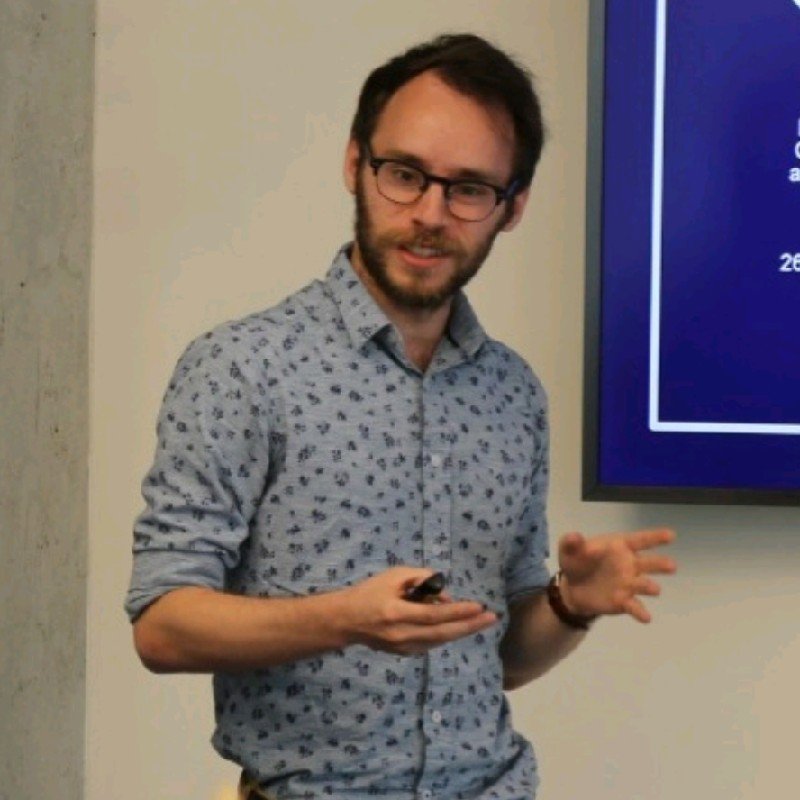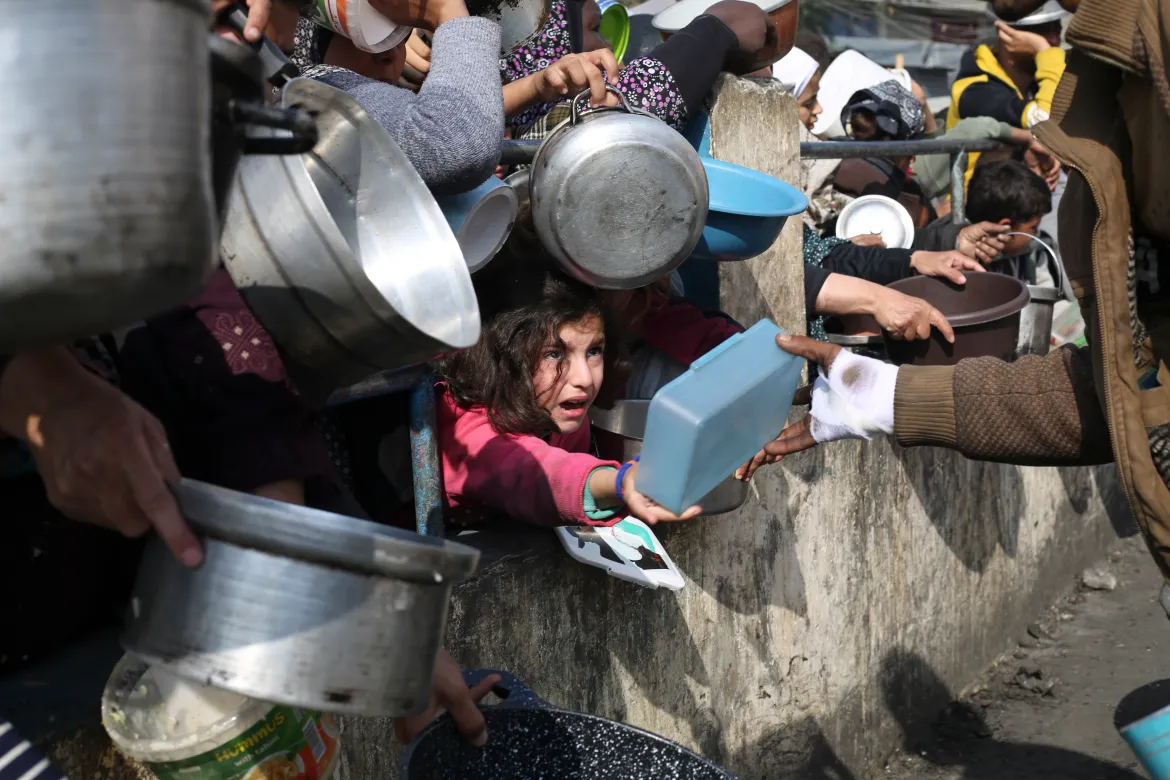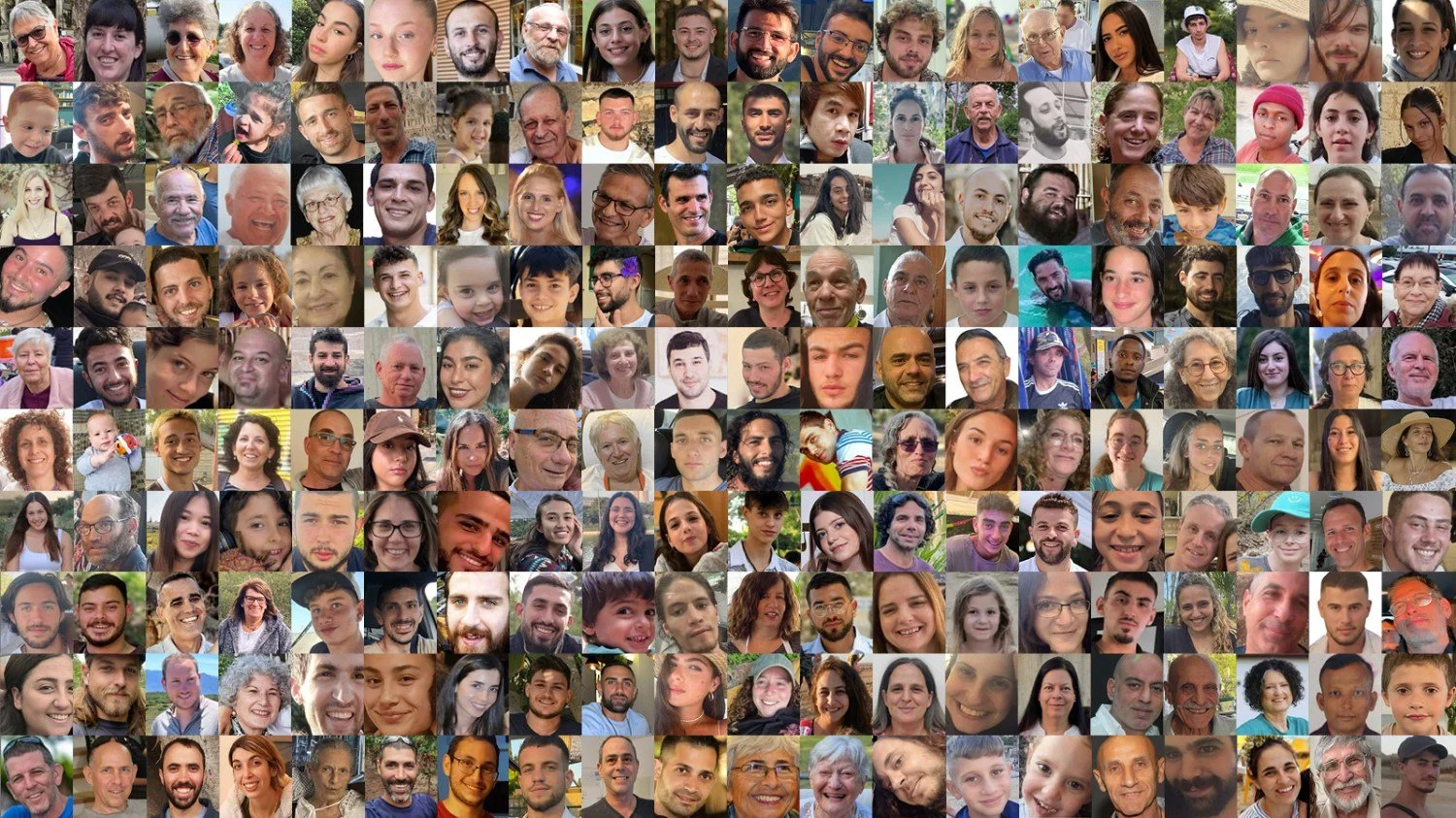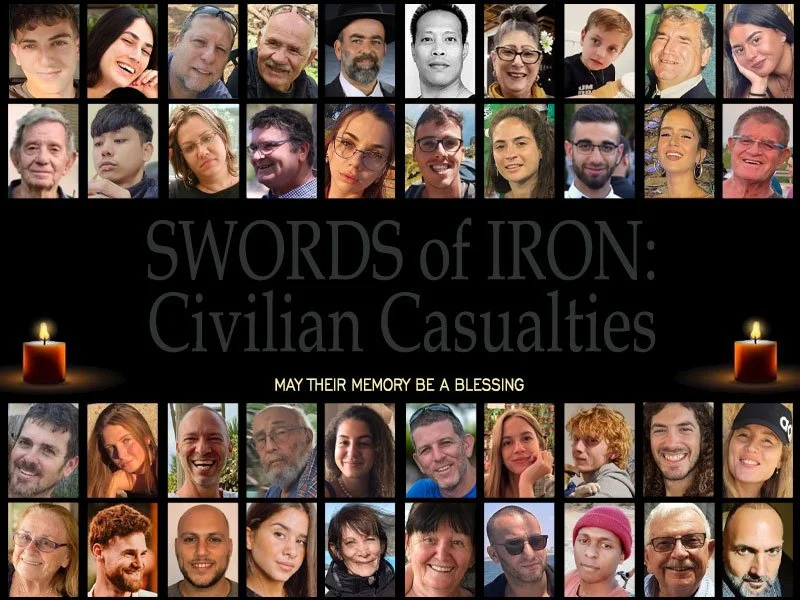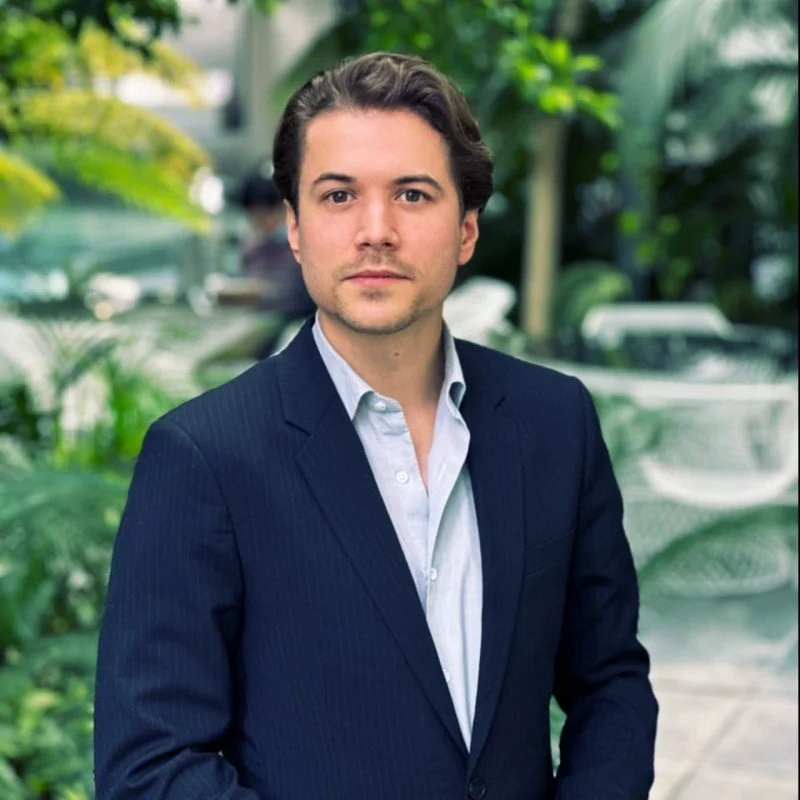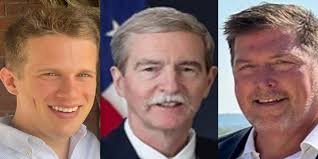Iky Salinas
The enduring conflict that has persisted for over almost a century between Israelis and Palestinians casts a profound shadow over the daily lives of all those who call that land home. For the past year and a half, we have borne witness to one of the most devastating escalations of violence in the entire history of the conflict, exacting a heavy toll on civilians from both sides. Possible solutions seem elusive in this protracted conflict, making it imperative to approach it from an academic standpoint, with the objective of providing activists and agents of peace with new insights to combat violence and advance the cause towards a peaceful reality.
I am Itzhak (Iky) Salinas, a Mexican-American-Israeli activist and analyst dedicated to the pursuit of peace between Israelis and Palestinians. I have a long history of professional and academic involvement in the field, I completed a bachelor’s degree in political science from the University of Haifa and a master's degree in nonprofit management from The Hebrew University of Jerusalem, where I focused extensively on organizations engaged in peacebuilding. This academic training significantly enriched my path as an activist and peace practitioner, equipping me with valuable knowledge of organizational management, understanding in strategic planning, political acumen, and a deep grasp of the Israeli-Palestinian peacebuilding field.
In the professional field, I recently completed a three-year tenure at Middle East Entrepreneurs of Tomorrow (MEET), an organization committed to bringing Israeli and Palestinian youth together through computer science education. I have further experience in similar nonprofit organizations and have also acquired experience in political campaigning. Due to my familiarity with the field, I have come to realize that, although most peace-seeking organizations work with a lot of commitment, they generally lack sufficient evidence-based data and models to guide their efforts. There is a critical need for research that can have a significant impact on the necessary scale to effect real change.
I intend to conduct studies that will, in various ways, address one overall question: What impact do the Israeli-Palestinian peacebuilding CSOs have on the conflict? The research can delve into such questions as how can impact be measured effectively within the Israeli-Palestinian peacebuilding field? And how can we use impact measurement and other available tools to empower the field and improve its performance?
My goal is to utilize the analysis of the effectiveness of NGO peace interventions to help steer the field towards more impactful peacebuilding. This academic pursuit will involve a multidisciplinary study deriving concepts and research from fields such as NGO management, organizational behavior studies, conflict management and resolution, and international relations. Many tools to empower the peacebuilding field already exist, as researched by such scholars as Johan Galtung, Jody Hoffer Gittel, Michelle Gawerc, Cedric de Coning, Pamina Firchrow, Peter Frumkin, John Paul Lederach and more— some of whom are affiliated with UMB, such as Karen Ross and Jeffrey Pugh.
My approach encompasses three levels: the strategic, the impact, and the organizational. On the strategic level, the intent is to align the field towards a joint mission and to scale up impact on an aggregate level rather than through the individual organizations. At the impact level the emphasis lies on improving impact towards beneficiaries, communities, and partnerships through the strategic implementation of scaling-up strategies. The organizational level addresses internal challenges faced by organizations and the field, including organizational capacity, burnout, low compensation, underrepresentation of key stakeholders and more.
The aforementioned researchers have provided an array of tools that can be built upon and synthesized to create a holistic strategy to measure and improve impact in the field. On the strategic level, impact measurement could build off research from Firchrow and MacGinty, who through their Everyday Peace Indicators project have established guidelines towards creating real indicators that measure change while bridging between bottom-up and top-down indicators. This approach would give more agency over the peacebuilding process to those living in the region as opposed to international actors. Furthermore, the topic of partnerships has seen research conducted by Strichman, whose perspective on Adaptive Capacity highlights the importance of becoming learning organizations. Hoffer Gittel provides a similar understanding through the concept of Relational Coordination as it conceptualizes a framework for building partnerships within the field. One last aspect of research that is worth mentioning here is from De Coning, who emphasizes flexible, evolving impact measurement through iteration in evaluating the impact, allowing for this strategy to adapt to the changes in the field.
Partnerships can be seen from within and without, beyond the established process to create a centralized field and framework within it, it is important to establish partnerships with the stakeholders of the field as well. These stakeholders include the beneficiaries themselves and their communities, for which a model of establishing key characteristics in the selection process is provided by Pugh’s Catalytic Network Model. Beyond the beneficiaries, the practitioners should also be considered. Gawerc’s suggestions for how to sustain long term commitment by building an affective attachment to the field should be further investigated to turn practitioners into committed professionals.
My personal, academic and professional experience positions me as someone who can potentially contribute to the field of peacebuilding. My multinational background, as one who speaks 3 different languages and has adapted to 3 different cultures, has prepared me for cross cultural communication. My activism has enhanced my ability to undertake unique projects to further the peacebuilding community. Most recently this commitment materialized in my work as a political campaign manager to get the first Palestinian elected to the Jerusalem City Council. (Owing to the Gaza War, the initiative was postponed)
As daunting as the current escalation may appear, it signals a potential turning point for the peacebuilding field. I am steadfast in my belief that the research I aspire to undertake will serve as a cornerstone for a rejuvenated approach, paving the way for a tangible reality of peace. Echoing JFK's sentiment delivered at the UN in 1963, 'Peace is a daily, a weekly, a monthly process, gradually changing opinions, slowly eroding old barriers, quietly building new structures.' Despite the enduring challenges, I remain resolute in my commitment. I see this moment as an opportunity to contribute meaningfully to the ongoing pursuit of peace in Israel and Palestine. I am eager to embark on this journey and be an active part of shaping a future where peace thrives and transforms lives.
In addition to my current work, I contributed to MEET’s USAID-funded Northern Innovators program (2020–2023). I have attached the program’s second-year Monitoring, Evaluation, and Learning (MEL) plan, which outlines key measurement tools and strategy. Of particular interest are the Results Framework and the Performance Monitoring Plan.
For insight into how USAID structures its measurement indicators, see Section 3.2 of the plan. The first three metrics in the performance indicators table were mandated by USAID, while the remaining were submitted by MEET as additional, self-defined indicators.
View the MEL plan:
https://docs.google.com/document/d/1gGyCg8Bn7F_0UpS-8HkOuFPns-BspSdp/edit?usp=sharing&ouid=111033924517633597069&rtpof=true&sd=true
Jack Blum to receive Honorary Degree from Bard
Bard College has announced that Jack Arthur Blum ’62, a Bard trustee associate and lifelong public servant, will receive an Honorary Degree at its 2025 Commencement ceremony.
Blum earned a JD from Columbia Law School and began his distinguished career with the Senate Antitrust Subcommittee, where he led investigations into mortgage fraud and redlining. His groundbreaking work exposed discriminatory practices, including a redline map drawn by Boston bankers showing where Black Americans could access mortgages.
In 1972, he moved to the Senate Foreign Relations Committee (SFRC), contributing to the investigation of CIA involvement in Chile and foreign bribery by U.S. corporations. His efforts were instrumental in the passage of the Foreign Corrupt Practices Act and in the prosecution of Japanese Prime Minister Tanaka Kakuei.
Blum returned to the SFRC in 1986 as special counsel, where he worked alongside Senator John Kerry to expose drug trafficking and money laundering networks. His investigations revealed the criminal activities of the Bank of Credit and Commerce International and the drug-related operations of General Manuel Noriega.
Beyond the Senate, Blum chaired a United Nations Expert Group on asset recovery and has served as an expert witness in major international fraud and tax evasion cases. Since 2006, he has collaborated with the government of Norway and the UN to help alleviate global poverty.
This honorary degree recognizes Blum’s tireless dedication to justice, transparency, and public accountability across a lifetime of legal, investigative, and humanitarian service.
To view all the Honorary Degree Recipients, visit:
Bard College Honorary Degrees 2025
Haitong Du
I am a DPhil (PhD) student in International Relations at Balliol College, University of Oxford. I hold an MPhil in International Relations from Pembroke College, Oxford and a BA in International Relations (Phi Beta Kappa) from Tufts University. My current research focuses on how the rise of personalist leaders influences the international structure, particularly in the context of contemporary US-China relations. I explore how interactions between great powers have become increasingly informal, discretionary, and leader-driven in a world drifting away from institutional constraints. I maintain a secondary research interest in European diplomatic history from the 17th century onwards.
An active tutor across colleges within the University of Oxford, I have taught the following papers as part of the Final Honours School for degrees in Philosophy, Politics, & Economics, and History & Politics: International Relations (core paper), International Relations in the era of the Two World Wars, International Relations in the era of the Cold War, and Politics in China.
Whilst at Tufts, I enrolled in the 2019-20 Education for Public Inquiry and International Citizenship (EPIIC), focusing on the prevention of genocide and mass atrocities. I have been professionally and personally indebted to the Institute for Global Leadership (IGL), under the direction of Prof Abiodun Williams and Heather Barry. As I graduated from Tufts in 2022, I was connected to Prof Sherman Teichman, whose mentorship and intellectual generosity have continued to shape my thinking on international affairs, especially during this transformative era of global power realignment and democratic uncertainty.
You may reach me by emailing haitong.du [at] politics.ox.ac.uk.
Jay D. Blitzman
Hon. Jay D. Blitzman, (retired) served as the First Justice of the Massachusetts Middlesex Juvenile Court. Prior to his judicial appointment he was a public defender who was a co-founder and the first director of the Roxbury Youth Advocacy Project, an interdisciplinary public defender’s unit which was the template for the creation of the statewide Massachusetts Youth Advocacy Division. He was also a co-founder of Citizens for Juvenile Justice (CfJJ). Since his judicial retirement, he has consulted for the Sixth Amendment Center (6AC) and served as the interim Executive Director of Massachusetts Advocates for Children. He now serves MAC as an Emeritus Policy Advisor. Jay consults on juvenile, criminal and child welfare issues, mentors attorneys, and holds teaching positions at Harvard Law School (Trial Advocacy), Northeastern Law School (Juvenile Law) and Boston College Law (The Cradle to Prison Pipeline), and New England Law Boston (Children and the Law). Jay is also on the faculty at the Center for Law, Brain &; Behavior focusing on late teen and emerging adult issues (CLBB- M.G.H. and Harvard Medical School). He also was an affiliate of the Boston University Center for Antiracist Research. Jay writes and presents frequently on a wide array of issues related to advancing equity and deconstructing the cradle to prison pipeline. Recent articles include, Cheating The Evidence To Get To Best Interest (Family Court Review, Hofstra Law 2024), Let The Sunshine In (ABA Criminal Justice 2024), Let’s Follow The Science on Late Adolescence” (ABA Criminal Justice 2022), The State of Juvenile Justice 2018-2024 (ABA Criminal Justice), Shutting Down The School to Prison Pipeline (ABA Human Rights 2021, Open The Doors (Mass. L. Rev. 2021), Justice for Some: A Tale of Two Americas (Civic Right Institute Juvenile Justice Update 2020), and Deconstructing The School to Prison Pipeline (BBA Journal 2018). He was a co-author and editor of the MCLE Massachusetts Juvenile Court Bench Bar books.
Jay serves on the boards of directors of Discovering Justice, Massachusetts Mental Health Advisory Committee, and is a member of the Children’s Justice Act Task Force. He serves on the advisory boards of Citizens for Juvenile Justice (CfJJ), UTEC, More Than Words (MTW), and Northeastern Law School’s Cradle to Prison and Salus Populi (Social Determinants of Public Health) initiatives. Jay is also a Massachusetts Advocates for Justice Fellow working with More Than Words (MTW). Honors include: the 2024 Massachusetts Psychological Association’s Humanitarian of the Year Award, the first recipient of CfJJ’s Youth Juvenile Justice Icon award in 2023, the 2019 ABA Livingston Hall Juvenile Justice Award recipient. Other recognition includes being the first person to receive the MBA Juvenile & Child Welfare Section Award, the 2023 Boston College Law School Holland Lifetime Achievement Award, the Lowell 100 award, the Judge Paul Chernoff Servants of Justice Award and the Rebecca Pries Adolescent Consultation Services Indispensable Friend Award. Massachusetts’ public defender system annually presents annually the Jay Blitzman Award for Youth Advocacy.
Rachel Leven
Rachel was a first-generation leader of NIMEP, serving as a co-chair of the group and editor and chief of the journal for two years. She also traveled to Lebanon, Egypt, the West Bank, and Israel. In Egypt she discovered a passion for waste management and the people and communities who are often pushed by society to the margins, literally picking through trash.
After coming back from Egypt she wrote one of the first/few academic accounts of the Zabaleen and continued her work, bringing her research to India where as a Fulbright scholar she wrote "The Economics of Trash" for Foreign Affairs Magazine. More importantly, in a waste pit on the top of the mountain in the Himalayas, she met her future husband who she now lives with in Chicago with their four-year-old daughter.
After working at Foreign Affairs Magazine, as a Fulbright Scholar, and in the Chicago Mayor's Office (among other positions), Rachel is now a policy consultant. You can find out more about her work to support a healthier democracy in the US, reproductive health, and state and local government at rl-insights.com. Rachel holds a BA in International Relations from Tufts and a Masters in Public Policy from Duke University.
Commemoration of the 1994 Genocide Against the Tutsi at MIT
The Massachusetts Rwandan Community Abroad, in collaboration with MIT students, invites you to attend a solemn event honoring the victims and survivors of the 1994 Genocide Against the Tutsi, during which one million lives were lost in the span of just 100 days.
While Rwanda officially observes the national commemoration on April 7, the Massachusetts Rwandan community will hold its remembrance gathering on April 10, 2025, at the Massachusetts Institute of Technology.
Event Details:
Date: April 10, 2025
Time: 4:00 PM – 6:00 PM
Location: W20-307, 3rd Floor, Stratton Student Center, Massachusetts Institute of Technology, Cambridge, MA 02139
This gathering provides an opportunity to reflect, honor the memory of the victims, and stand in solidarity with the survivors and their families.
For further information about Kwibuka and survivor support in the United States, please visit: www.ibukausa.org
Undercurrents: An Art Exhibition Exploring Community Challenges
Join us for Undercurrents, an art exhibition that uses creativity as a lens to explore the pressing issues affecting our communities today. Through powerful visual works, artists will shed light on local and global challenges while sparking meaningful dialogue.
Dates: April 14–15, 2025
Time: 6:00 PM – 8:30 PM
Location: The Clayroom, 1408 Beacon St, Brookline
An artist panel will take place on April 14 at 7:00 PM, offering deeper insight into the inspirations and messages behind the artwork.
Exhibiting Artists:
Janet Kawada
JayPix Belmer
Gail Bos
Carla Osberg
Terry Boutelle
Lisa Fliegel
Come learn more about the stories behind the artwork, connect with the artists, and reflect on how art can become a tool for awareness and action.
Book your free ticket:
Register at tinyurl.com/undercurrentsevent
For more details:
Call +305-606-7334 or email mariaa.udalova@gmail.com
Boy Brother Friend: Matthew Benson, Nichole Sobecki, and the Power of Storytelling in Fashion
The Columbia Journalism Review has spotlighted Boy Brother Friend, an independent fashion publication that brings together style and urgent geopolitical storytelling. Editorial director Matthew Benson and founder Kk Obi have redefined the boundaries of fashion media by using it as a vehicle to engage with real-world conflict, history, and identity.
Their latest issue centers on Sudan, featuring contributions from Sudanese thinkers, artists, and photographers. Among the visual work is a striking photograph by Nichole Sobecki of ancient pyramids in present-day Sudan—an image that speaks to history, cultural endurance, and the stakes of erasure in times of war.
Matthew Benson, whose editorial direction fuses creative innovation with investigative depth, has helped shape Boy Brother Friend into a platform that questions traditional narratives and foregrounds underrepresented voices.
Nichole Sobecki’s inclusion adds to the issue’s gravitas, aligning her continued commitment to ethical visual storytelling with the magazine’s mission to connect beauty and truth.
Read the full article here:
Columbia Journalism Review: Glamour Crashes Down to Reality
Courtesy Boy Brother Friend. (Nichole Sobecki)
Egypt and the Horn of Africa: Geopolitics, Water, and Regional Influence
Security in Context has published a timely and insightful analysis by Sherif Mansour, an Egyptian-American democracy and human rights advocate, exploring Egypt’s expanding political and military engagement in the Horn of Africa. At the center of the discussion is the Grand Ethiopian Renaissance Dam (GERD), which has been a flashpoint in regional diplomacy, with Egypt viewing the project as a threat to its water security and national interests.
Mansour, known for his longstanding work defending press freedom and civil society in the Middle East, brings critical insight into how Egypt’s strategic posture in the region intersects with broader authoritarian dynamics. He details Egypt’s efforts to counterbalance Ethiopian influence by supporting rival factions in Sudan and Somalia, as well as proposing peacekeeping deployments. His perspective highlights how overlapping environmental and political crises have intensified regional instability.
In highlighting the links between water, conflict, and power, Mansour urges a broader, collaborative response grounded in diplomacy and regional cooperation. His analysis serves as a reminder of how infrastructural and climate pressures are reshaping state behavior and alliances across East Africa.
Read the full article here:
Security in Context: Egypt and the Horn of Africa
The Human Cost of the Israel-Hamas War
Haaretz has published a detailed and harrowing timeline documenting how 50,000 Palestinians were killed in Gaza since the start of the war. This article serves as a vital record of a humanitarian catastrophe, mapping each stage of the destruction with precision and journalistic rigor.
The reporting presents an unflinching account of what occurred, day by day, from the first airstrikes to the ongoing devastation. It challenges readers to confront the reality behind the statistics and underscores the importance of bearing witness.
In a moment where narratives are contested and lives are politicized, this piece stands as a sobering reminder of the human cost of conflict.
Read the full article here:
Haaretz: 50,000 Palestinians Killed in Gaza
Al Jazeera has also published a powerful photo essay titled Israel’s War on Gaza: 12 Months, 12 Pictures, documenting the devastation experienced by Palestinians over the past year. The piece highlights the humanitarian toll through images of children queuing for food, families breaking their Ramadan fast amid rubble, and overwhelmed hospitals treating victims of bombardment. The photos, spanning January to December 2024, illustrate the widespread destruction of homes, displacement of families, and the collapse of Gaza’s healthcare and sanitation systems.
Witness a stark visual chronicle of devastation, displacement, and death:
Al Jazeera: Israel’s War on Gaza – 12 Months, 12 Pictures
To contextualize the other side of the tragedy, The Times has published a powerful visual record of the hostages taken by Hamas during the October 7, 2023 attack on Israel. The piece includes an interactive graphic showing the faces and stories of those still in captivity, those killed, and those released or rescued.
As of January 2025, 95 individuals remain in Gaza, including 62 presumed alive and 33 whose bodies are being held. The Times’ database honors the memory and humanity of the victims, drawing from family forums, media reporting, and IDF investigations.
View the photo collection and interactive database here:
The Times: Israeli Hostages in Gaza
According to the Israeli government, approximately 1,200 people were killed during the Hamas-led attack on October 7, 2023. The names of over 800 civilians who were murdered in their homes, towns, and communities confronting Hamas terrorists have been released, not including military and emergency personnel. This list is continually updated and includes casualties from related attacks following October 7.
Israeli Government Report on Civilian Casualties:
Government of Israel: Civilian Casualties (Swords of Iron)
The Human Cost of the Israel-Hamas War
Image Courtesy of Haaretz
The Human Cost of the Israel-Hamas War
Image Courtesy of Al Jazeera
The Human Cost of the Israel-Hamas War
Image Courtesy of The Times
The Human Cost of the Israel-Hamas War
Image courtesy of the Government of Israel
Peter Alegi
Peter Alegi is Professor of History at Michigan State University and the author of several books, including Laduma! Soccer, Politics & Society in South Africa and African Soccerscapes: How a Continent Changed the World’s Game. Currently, he is writing a book titled Afripod: How Scholarly Podcasting Is Changing African Studies. Alegi teaches undergraduate and graduate courses on the history of South Africa, modern Africa, and global soccer. He has received teaching awards at MSU, including the Fintz Award for Teaching Excellence in the Arts and Humanities, the ISS Teaching Excellence Award in the Social Sciences, and the Sullivan Teaching Excellence Award (twice). Alegi hosts the Africa Past and Present podcast (afripod.aodl.org) and convenes the Football Scholars Forum (footballscholars.org), an online book club. He is Book Series Editor for Michigan State University Press’s “African History and Culture” Series, and serves on the Boards of the International Journal of African Historical Studies, African Studies, and Sports Africa.
VII Foundation Exhibition
Opening April 8 at the National Museum of Bosnia and Herzegovina, April 1975: Phnom Penh / Saigon is a powerful exhibition by The VII Foundation, part of the Memory Module Program 2025. It documents the final days of the Vietnam War and the Khmer Rouge takeover in Cambodia, capturing moments of profound historical transition and human resilience as witnessed by the photographers on the ground.
Curated by Gary Knight and Jon Swain, the exhibition features over 100 photographs and personal artifacts from journalists who risked their lives to document history. It explores themes of conflict, memory, and survival through raw, unforgettable visuals. Among them is the visceral image of a man being punched—an iconic moment that encapsulates the chaos, fear, and emotion of the period. This and many other images confront viewers with the personal cost of geopolitical collapse.
Hosted by the VII Foundation, this exhibition serves not only as a memorial to those caught in the crossfire of history but also as a call to bear witness. It reminds us of the continued relevance of photojournalism in understanding the complexities of our world and honors the lives of 31 Cambodian journalists killed by the Khmer Rouge.
Location: National Museum of Bosnia and Herzegovina, Sarajevo
Opening Hours: Tue–Fri: 10 AM–7 PM, Sat–Sun: 10 AM–6 PM
Admission: Free for this exhibition
More info: https://theviifoundation.org/report/exhibitions/april-1975-phnom-penh-saigon/
Image courtesy of The VII Foundation.
Leo Stern: Consultant, Educator, and FASPE Business Fellow
Leo Stern is a consultant at Volentia, a strategy consulting firm specializing in business, geopolitics, and public affairs. Before transitioning into consulting, he worked as an orchestra conductor and saxophonist. He holds a Master’s degree in International Business and Diplomacy from HEIP Paris and has been involved in economic development initiatives in the Indo-Pacific, serving as a member of the French committee of the Pacific Economic Cooperation Council (PECC), chaired by Pascal Lamy. In addition to his consulting work, Leo is a guest lecturer in Paris, where he teaches business strategy and international relations.
In 2025, Leo was selected as a FASPE Business Fellow, recognizing his commitment to ethical leadership and integrity in professional life. The Fellowship at Auschwitz for the Study of Professional Ethics (FASPE) engages emerging leaders in a rigorous examination of ethical leadership and responsibility in the business world, grounded in historical context and contemporary challenges.
To take a look at all the Fellows, visit: https://www.faspe-ethics.org/2025-business-fellows/
This organization and its Fellowships are all the more critical in this time of descent into the darkness of corruption and autocracy.
If you wish to be nominated please contact me.
50/50 Startups - Israeli, Palestinian Collaboration and Coexistence, A Glimmer of Hope
Dear Friends and Colleagues,
There are, even in the current environment of anti-normalization and extreme polarization within our communities, resilient and persistent efforts to confront the pessimism that seems so pervasive. I have often referred to Leonard Cohen's Anthem lyric, "There is a crack, a crack in everything, that's how the light gets in." One such effort is one I am very proud to be affiliated with: 50:50 Startups. One of its core creators is my friend, and Trebuchet mentor, Amir Grinstein.
We will gather with a small group of bold Israeli and Palestinians, unique, courageous entrepreneurs who are alumni of the 50:50 Startups program, who will talk about their experiences building startups together.
The question we are entertaining is:
"Can Entrepreneurship Bridge an Extreme Divide?"
These unique, courageous entrepreneurs are alumni of the 50:50 Startups program, which brings Israelis and Palestinians together to develop and nurture collaborative startups. Northeastern University is its critical partner.
Attached, please find the flyer with all of the speakers' bios.
There will be excellent food, drinks, and perhaps a bit of hope and inspiration.
We look forward to seeing you soon.
Please RSVP soon by writing to both Amir and me.
Sherman and Amir
PS – Apologies for the late invitation. I was abroad until very recently.
Kansas Senators Urge Action Against Bird Flu Threat
Kansas Senators Patrick Schmidt, William Clifford, and Jeff Klemp are calling for urgent measures to combat the growing threat of Highly Pathogenic Avian Influenza (HPAI). With millions of birds already culled and rising concerns about potential livestock infections, the senators stress the need for increased funding, enhanced biosecurity, and accelerated vaccine development. They warn that without immediate action, food shortages and economic instability may worsen.
LTC Shanzhi Thia Recognized for Outstanding Academic Achievement and Maritime Research
LTC Shanzhi Thia was recently honored with two prestigious awards at the U.S. Naval War College.
LTC Thia (left) is seen receiving the esteemed Admiral Arleigh A. Burke Award from the President of the Naval War College, Rear Adm. Peter Garvin (right). The Admiral Arleigh A. Burke Award is presented to the International Student with the best academic performance across both intermediate and senior classes — a testament to LTC Thia's exceptional dedication and intellectual rigor.
In addition to this achievement, LTC Thia was also recognized with the Naval Submarine League Award, awarded for the best paper on a subject related to submarine warfare. His insightful essay, "Promises and Pitfalls: Prospects for Submarine Rescue Cooperation between the United States, and Russia and China, in the Indo-Pacific," stood out for its depth of research and strategic analysis.
LTC Thia's unwavering commitment to academic excellence and his invaluable contributions to maritime security studies continue to inspire and demonstrate the highest standards of scholarship and service.
Polarization in the Wild: Understanding Our Global Divides
Hope Makers in the Living Room presents a timely and thought-provoking conversation on one of the most pressing issues of our time: polarization.
From climate change debates to the rise of populist movements and the global pandemic, polarization isn’t just a buzzword—it’s actively reshaping our societies and democracies. But what does it really mean, and what can we do about it?
Join us for an evening of reflection and dialogue with Dr. Kati Kish Bar-On (MIT & Northeastern), who will explore the roots and implications of societal division—and why it so often leads to hatred.
Date & Time:
March 26
Starts at 7:30 PM
Location:
82 Atherton Rd., Unit 2
Brookline, MA 02446
Come be part of the conversation and help imagine ways forward, together.
Organize with Back from the Brink: Youth-Led Strategy on Nuclear Disarmament
Join Back from the Brink’s Boston-area Organizing Hub for a powerful afternoon of planning and collaboration to set goals and strategies for the year ahead. As the threat of nuclear war looms larger, this event offers an important opportunity to work together for disarmament and a safer future.
Date: Sunday, March 16
Time: 2:00–4:00 PM
Location: St. James’ Episcopal Church, 1991 Massachusetts Ave, Cambridge, MA 02140
The session will feature Maria Udalova, a Brookline High School student and member of Students for Nuclear Disarmament, as the guest speaker. Her youth leadership and perspective are a key highlight of this gathering.
Attendees will take part in breakout groups focused on:
State and federal legislation
Coalition building
Organizational outreach
Youth engagement
Media strategy
Whether you're new to the movement or a returning organizer, this meeting is a chance to connect, collaborate, and build momentum.
RSVP to: info@gbpsr.org
We need your voice in shaping our future.
Mark Silk
Mark Silk graduated from Harvard College in 1972 and earned his Ph.D. in medieval history from Harvard University in 1982. After teaching at Harvard in the Department of History and Literature for three years, he became editor of the Boston Review. In 1987 he joined the staff of the Atlanta Journal-Constitution, where he worked variously as a reporter, editorial writer and columnist. In 1996 he became the first director of the Leonard E. Greenberg Center for the Study of Religion in Public Life and in 1998 founding editor of Religion in the News, a magazine published by the Center that examines how the news media handle religious subject matter. In June 2005, he was also named director of the Trinity College Program on Public Values, comprising both the Greenberg Center and a new Institute for the Study of Secularism in Society and Culture.
Olivia Nielsen
Olivia Nielsen was born and raised in Paris by American parents and found her way into the housing sector somewhat unexpectedly—while working for CEMEX, a global cement company, during the Haiti earthquake response. What began as a crash course in post-disaster reconstruction turned into five years living in Haiti and the Caribbean, developing housing projects across Latin America.
After years focused on construction, Olivia decided that pouring cement was the easy part—and turned her attention to the harder challenges: land, policy, and housing finance. As a consultant for the World Bank, she has supported housing policy reforms in over 50 countries, from Papua New Guinea to the Central African Republic, helping governments design systems that make safe, affordable housing possible.
She is now a Principal at Miyamoto International, a global engineering firm specializing in resilience, where she leads the firm’s affordable housing policy practice. Olivia lives in Brookline, Massachusetts with her family and animals, and travels frequently to support the development of housing systems that work for all.

